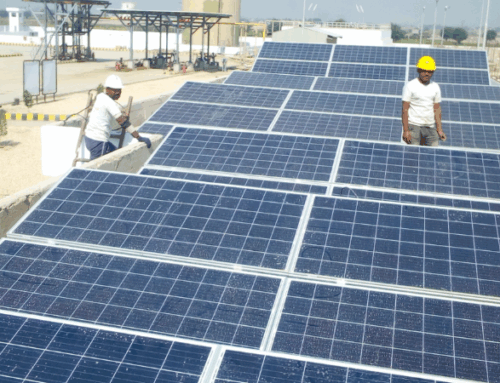Energy security and energy independence are serious concepts that highlight a nation’s ability to sustain its own energy needs while safeguarding its infrastructure from outside threats. Achieving energy independence means a country can fulfill its domestic energy demand without relying on energy imports from other nations. Independence alone enhances energy security and economic stability. Furthermore, energy security ensures that the nation’s energy grid and supply are reliable and protected against both physical and cyber threats. The principles of energy security and independence are fundamental for the future growth of the energy economy. Let’s explore these concepts in more detail as we dive into the pillars of energy security.
What Is Energy Security?
Energy security refers to a country’s ability to protect itself from outside threats to its energy supply and grid reliability. Moreover, energy security is described as the continuous availability and affordability of energy supply that is necessary to meet the energy demand of a nation. According to the International Energy Agency (IEA), there are two primary categories of energy security: the ability to maintain a steady supply of energy, and the capacity for rapid adaptation to meet short term demand.
It is important to recognize that the concept of energy security is dynamic and does not have a one-size-fits-all definition that remains relevant across different contexts. Therefore, the understanding of energy security is subject to change based on the energy industry challenges, geopolitical factors, and the specific energy needs of a country.
Why Is Energy Independence So Important?
Energy independence, although a factor contributing to energy security, is a standalone concept that must be explored on its own. Energy independence by definition is the ability of a country to meet all its energy needs without having to import energy from other countries. There are several reasons why energy independence is so important for a nation. Primarily, energy independence protects a country’s energy market prices from fluctuation based on volatile international markets. We saw a good example of this in recent times with Germany during the Russia-Ukraine conflict. Germany was very reliant on Russia for natural gas supply, and when the war broke out, those supplies quickly halted. This caused German natural gas prices to skyrocket and led to the EU having to place a gas cap on rates in order to control prices.
Another important aspect of energy independence has to do with job creation and economic growth. In the United States, for example, the natural gas industry supports 9.8 million jobs and 5.6% of all employment. Without domestic natural gas fracking and production, these jobs would dwindle and could lead to economic recessions in certain parts of the country.
The Three Pillars Of Energy Security
When it comes to energy security in the United States, the industry generally recognizes three pillars to be addressed in order to achieve energy security. Some of these pillars overlap with the pillars of energy transition in the United States.
Energy Reliability
Energy reliability pertains to a nation’s energy supply’s ability to continually meet the energy demands of each energy sector. Certain sections of the energy economy, such as industrial energy consumption, demand lots of power, so this is a critical component to keeping factories online. The assessment of reliability involves tracking how often and for how long customers experience energy services interruptions. The reliability of an energy system is influenced by the quality of its two main components: the availability of energy production and the efficiency of its delivery system to end users. The essential features of a dependable electrical transmission system include:
- Ongoing monitoring and regulation to maintain standard conditions
- Control mechanisms designed to limit energy interruptions
- Regular maintenance and testing
- Up-to-date cybersecurity measures to mitigate the impact of cyber-attacks
Energy Resilience
Energy resilience is defined as an energy system’s ability to prevent and recuperate from both expected and unexpected interruptions in energy supply. This includes maintaining systems and operations that can respond quickly when an electric grid goes down or there is a disruption in natural gas supply. Disruptions may arise from various events such as extreme weather, accidents, wildlife, vegetation overgrowth, fires, acts of terrorism, cyberattacks, and other external causes. Essential qualities of an energy-resilient system encompass:
- Multiple fuel sources for risk mitigation
- Built-in redundancy to mitigate the impact of power outages
- Emergency operating protocols
- On-site power generation, or distributed energy systems, to maintain power during grid outages
Energy Efficiency
Energy efficiency entails utilizing the least amount of energy necessary to perform certain operations or processes in a building. Factors such as old infrastructure, obsolete technology, inadequate maintenance of equipment, and a lack of awareness regarding commercial energy usage can lead to energy inefficiency within facilities. The characteristics of a highly efficient energy system include:
- Operating with the lowest amount of energy consumption
- Tracking and measuring energy usage to look for inefficiencies
- Implementing effective demand response programs
- Undergoing regular assessments of facilities to compare usage against targets or benchmarks
- Implementing sophisticated data analysis tools to detect irregularities that impact energy efficiency
Factors That Affect Energy Security
Several factors influence energy security, impacting a nation’s ability to maintain a stable and reliable energy supply. These include:
Energy Mix Diversity
Dependence on a single fossil fuel or limited sources of energy can affect a nation’s energy security when that source becomes expensive or hard to find. A diverse energy mix, including renewable energy sources, can enhance energy security.
Geopolitical Stability
The political stability of energy-producing regions can affect energy security if a nation is dependent on another for energy imports. Political unrest, conflicts, or diplomatic tensions can lead to supply disruptions.
Infrastructure Reliability
The condition of a country’s energy infrastructure, including power plants, electric transmission lines, and natural gas pipelines, are crucial for secure energy supply and delivery. Aging or inadequate infrastructure can lead to service disruptions.
Regulatory Frameworks
Effective energy regulations and policies can be crucial for energy security. Oftentimes these policies can help to promote energy efficiency, resource diversification, and investment in infrastructure and renewable energy.
Technological Innovation
Advances in energy technology can improve energy efficiency, develop new energy sources from renewable energy, enhance electricity grid resilience, and even help to curtail energy demand with artificial intelligence.
Market Dynamics
Fluctuations in global energy markets can drastically impact energy security in nation’s that rely on the global energy economy. Without energy independence, these nation’s can be greatly affected by high energy prices during times of war and unrest.
Environmental Policies
Policies aimed at net zero carbon emissions, carbon neutral organizations, and reducing greenhouse gas emissions overall, can influence the energy mix, pushing towards more sustainable energy systems.
Energy Efficiency
Reducing total energy demand in a nation can help to secure its energy grid. Less demand for energy means less stress on the electricity grid and transmission lines, which can help to ease blackouts and brownouts.
Natural Disasters and Climate Change
Extreme weather events and changing climate patterns can threaten energy supply and demand. Polar vortex situations can create ultra-high demand for electricity and natural gas, which can cause grid outages and extremely high energy prices.
Cybersecurity Threats
As energy systems become more digitized, they are increasingly vulnerable to cyberattacks. Some cybercriminals aim to target electricity networks as a means of cyber warfare. By hacking into the computers that manage power infrastructure, these attacks can create havoc and cause a lot of damage.
Want To Increase Your Business’s Energy Security?
As the world changes, many business owners are interested in developing more reliable energy systems at their individual facilities. Installing commercial solar systems, commercial battery storage, and developing distributed energy systems are a great way to rely less on the central electricity grid and become more independent. Our team of energy experts can guide you through your energy options and help you develop an energy strategy that is centered around security and independence. Contact us today!



